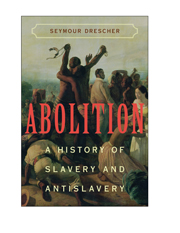Book contents
- Frontmatter
- Contents
- Preface
- PART ONE EXTENSION
- PART TWO CRISIS
- 4 Border Skirmishes
- 5 Age of the American Revolution, 1770s–1820s
- 6 Franco-American Revolutions, 1780s–1820s
- 7 Latin American Revolutions, 1810s–1820s
- 8 Abolitionism without Revolution: Great Britain, 1770s–1820s
- PART THREE CONTRACTION
- PART FOUR REVERSION
- Index
- References
7 - Latin American Revolutions, 1810s–1820s
Published online by Cambridge University Press: 04 August 2010
- Frontmatter
- Contents
- Preface
- PART ONE EXTENSION
- PART TWO CRISIS
- 4 Border Skirmishes
- 5 Age of the American Revolution, 1770s–1820s
- 6 Franco-American Revolutions, 1780s–1820s
- 7 Latin American Revolutions, 1810s–1820s
- 8 Abolitionism without Revolution: Great Britain, 1770s–1820s
- PART THREE CONTRACTION
- PART FOUR REVERSION
- Index
- References
Summary
The Spanish Empire, c. 1775–1825
Latin Americans entered the revolutionary process decades later than their Anglo-American and Franco-American counterparts. Different areas and different social segments had a range of predecessors from which to draw. The white elites who began the quest for greater autonomy in the colonies of mainland Spanish America envisioned a North American model and outcome. Events in France and Haiti had different meanings for observers on both sides of the Atlantic. In Latin America, the revolutionary process began with elites seeking local autonomy within a society that they envisioned as retaining the social hierarchies of the colonial regime. One of their greatest fears, however, was that the outcome might take a Franco-American turn toward conflict over racial equality or, even more radically, toward slave liberation. They were unable to avoid a drift toward both of these shoals. The initial insurgents encountered divisions first among themselves and then within the free colored and slave populations. These conflicts would occasionally replicate the terror and economic devastation of the Franco-Caribbean revolutions. The Spanish-American variant would ultimately resemble neither the Anglo-American nor the Franco-Caribbean revolutions in most respects, but would have a similarly ambivalent result for the fate of slavery.
The structure of Latin American society profoundly affected the process of its revolutions. At the outset, South America was neither overwhelmingly white and free like North America nor overwhelmingly black and slave like the French overseas colonies.
- Type
- Chapter
- Information
- AbolitionA History of Slavery and Antislavery, pp. 181 - 204Publisher: Cambridge University PressPrint publication year: 2009



